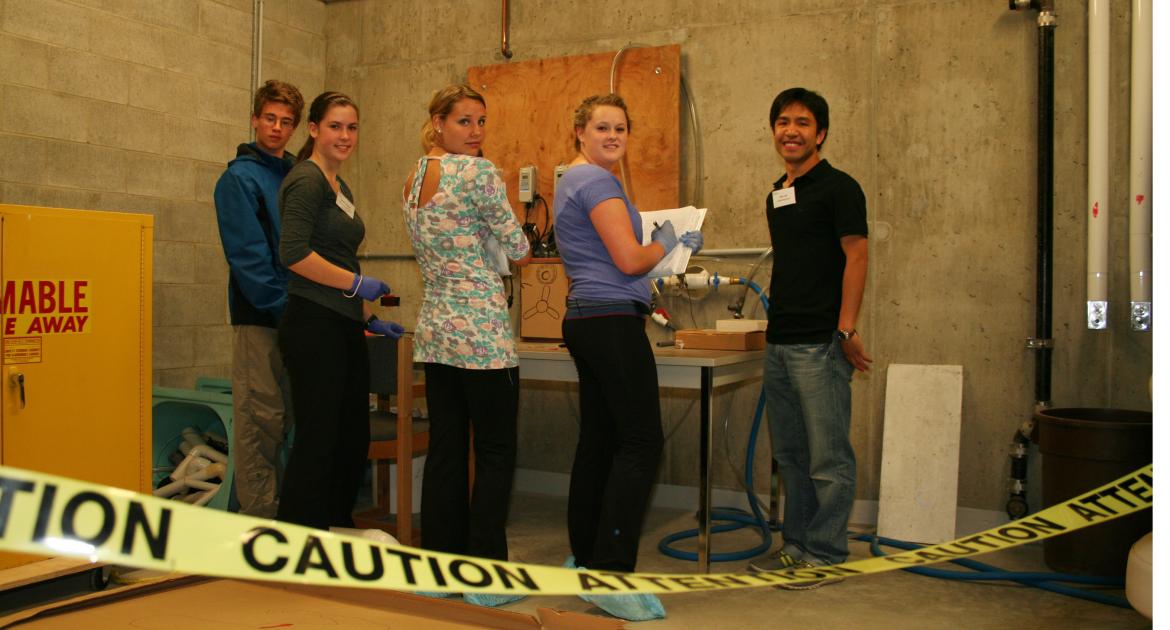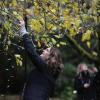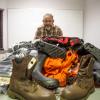
July 23, 2012 - 8:00am
High school students in grades nine to 12 are dusting off their best CSI techniques as Genome BC Geneskool Summer Camp sets up at Vancouver Island University’s Nanaimo campus.
This fun and interactive week-long science camp, which runs from July 23 to July 27, allows students to delve into hands-on activities and experience the world of forensics while having fun.
“Students love the camp because it makes science relevant to their lives,” says Sally Greenwood, Vice President, Communications and Education at Genome BC.
Genome BC is a non-profit organization that funds cutting-edge genomics research projects in the province. Each year, Genome BC’s Geneskool summer camp brings high school students into a university lab to do genetics, forensics-themed experiments.
“We’ve been involved in communities throughout BC since 2004 but this is the first time we’re bringing our summer camp to Vancouver Island,” Greenwood adds.
“Students with a keen interest in biotechnology, genetics, or forensics are strongly encouraged to apply and we still have nine spots available. Students will get hands-on experience with documenting evidence at a crime scene, lifting fingerprints, analyzing bloodtype and blood splatter patterns, and doing gel electrophoresis.”
When it comes to genomics it’s not just about CSI and DNA. Genomics is tied to all living things from fish to fowl to fern. At VIU genomics research is involved with novel developments in aquaculture. Dr. Helen Gurney-Smith has developed a gene-chip for marine mussels which can be used in both aquaculture and environmental fields.
The mussel genomics project was originally undertaken to better understand why mussel farmers were suffering from unexplained mortality events. “We wanted to better understand both environmental and husbandry factors affecting mussel health and productivity,” says Dr. Gurney-Smith. “Our gene-chip will allow us to determine the relative importance of all stress factors affecting mussels.
“We are also proposing to further develop our gene-chip to be used in monitoring programs for waste-water at sewage treatment plants,” states Dr. Gurney-Smith. “The mussel gene-chip will allow us to determine the effect of various ‘compounds of emerging concern’ which have been identified in effluent streams. This will ensure that our coastal marine ecosystems are protected.”
Greenwood says researchers involved in Geneskool will explain scientific concepts and how they can be applied in real life situations, and explore the potential applications and impact of genomic technologies on Canadian society.
“Teachers also like our program because it ties in to the high school biology curriculum and meets their Ministry of Education teaching objectives,” she adds.
Greenwood says Geneskool will not only give students the advantage when they return to school in the Fall, but it will give them an edge when applying for university. Students have an opportunity to interact with graduate scientists and learn if there is a science career path in their future.
The cost of the weeklong Geneskool camp is $275 and bursaries are available. Visit www.geneskool.com for more information or to register.
-30-
[More photos on Flickr]()
About Genome British Columbia:
Genome British Columbia is a catalyst for the life sciences cluster on Canada’s West Coast, and manages a cumulative portfolio of over $550M in research projects and science and technology platforms. Working with governments, academia and industry across sectors such as forestry, fisheries, agriculture, environment, bioenergy, mining and human health, the goal of the organization is to generate social and economic benefits for British Columbia and Canada. www.genomebc.ca
In addition to research, Genome BC is committed to openness, meaningful dialogue, public outreach, and educational leadership, and as such, seeks to foster understanding and appreciation of the significance of genomics and proteomics science and technology among teachers, students, and the general public.
Tags: In the Community






